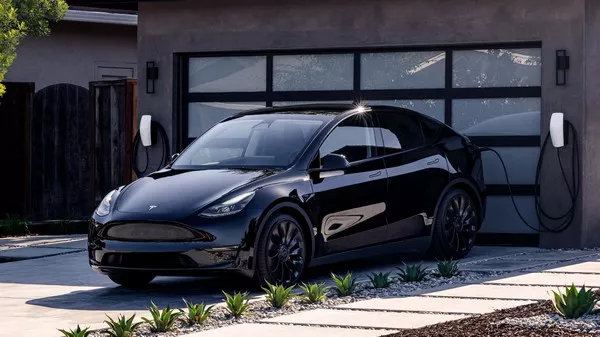The electric vehicle (EV) market in Europe is off to a robust start in 2024, with battery-electric vehicles (BEVs) showing significant growth despite changes in incentive programs across several European markets. According to recent data, registrations of all-electric cars surged by 29% compared to the previous year, while plug-in hybrids (PHEVs) also continued their upward trajectory, increasing by 23% since January 2023.
The combined registrations of BEVs and PHEVs totaled 198,993 deliveries in the month, with BEVs commanding a substantial 61% share of Europe’s new plug-in market, surpassing PHEVs by a significant margin.
In terms of market penetration, BEV registrations accounted for 11.9% of all new-car deliveries in Europe, while PHEVs represented 7.7%. Additionally, hybrid electric vehicles (HEVs) and mild hybrids (MHEVs) collectively captured a market share of 29.3%, indicating a growing interest in electrified vehicles among European consumers. Overall, nearly half of all new cars registered in Europe at the beginning of the year featured some form of electrification.
Meanwhile, traditional fuel sources witnessed a decline in market share, with petrol dropping to 35.8% from nearly 39% in January 2023, and diesel falling from 16% to 11.9% over the same period. If this trend continues, diesel deliveries could see a further decline, potentially reaching a critical point by 2027.
In the realm of electric vehicles, Tesla emerged as a dominant force, securing the top two spots in January’s EV sales rankings. The Tesla Model Y claimed the lead with 11,425 registrations, followed closely by the Tesla Model 3 with 6,479 registrations. Both models demonstrated strong performance across various European markets, with Germany, France, and the UK emerging as key contributors to Tesla’s success.
Other notable performers in the EV market included the Audi Q4 e-Tron, which ranked third with 4,979 registrations, and the Skoda Enyaq, which narrowly missed the top three with 4,816 registrations. Additionally, the Volvo XC40 showcased promising growth potential, with its BEV and PHEV variants collectively recording 4,554 registrations in January.
Among automotive brands, BMW emerged as the leader in the EV market, capturing a 10.3% share, closely followed by Tesla with a 9.1% share, and Mercedes-Benz with 9%. Audi and Volvo rounded out the top five, underscoring the intense competition among leading manufacturers in the EV segment.
Looking ahead, industry observers anticipate continued growth and innovation in the EV market, driven by advancements in technology, evolving consumer preferences, and government initiatives aimed at promoting sustainable mobility. As electric vehicles become increasingly accessible and desirable, manufacturers are poised to capitalize on the growing demand for eco-friendly transportation solutions across Europe and beyond.



























